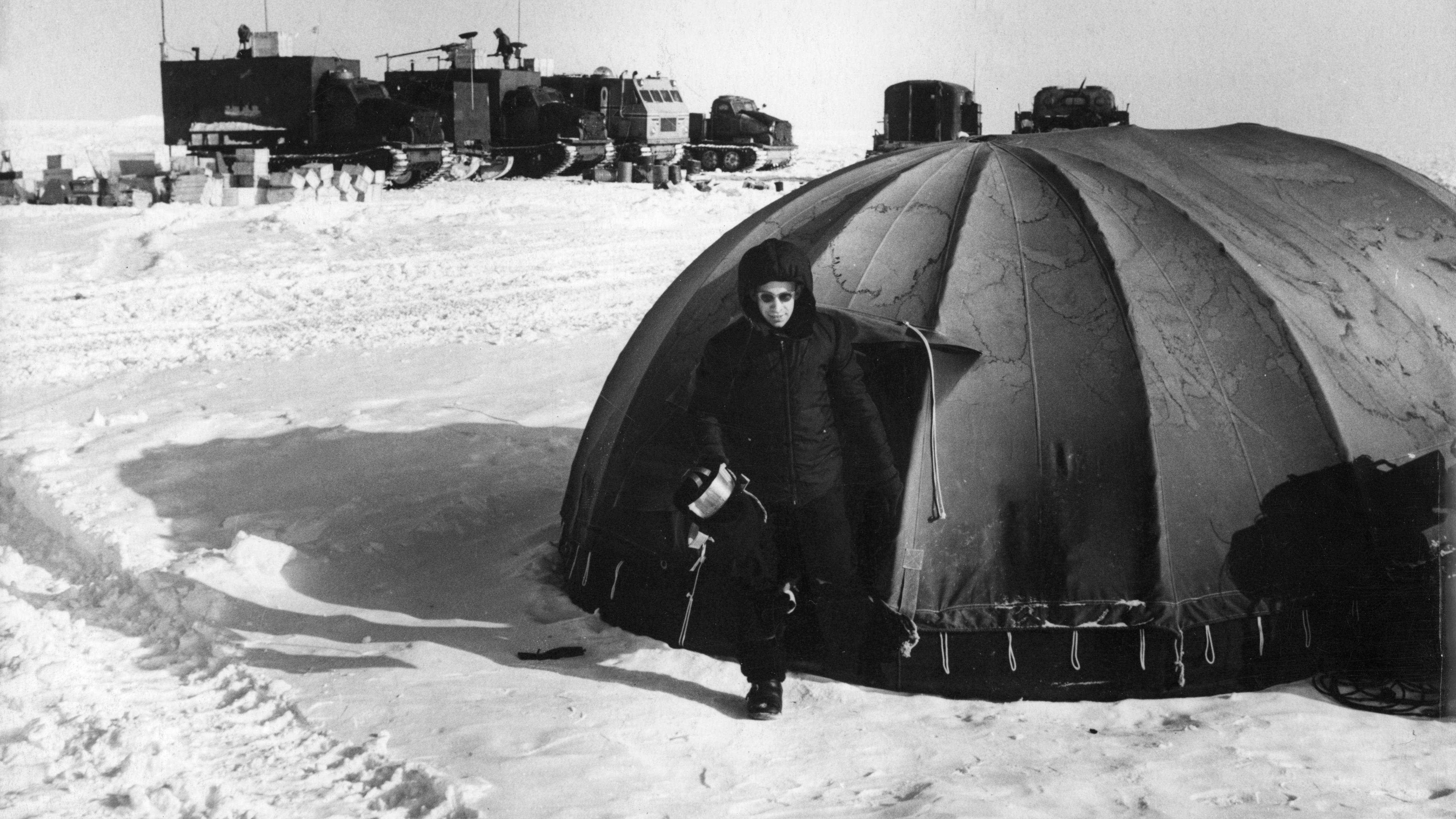First Murder In Antarctic May Have Been Over A Game Of Chess
The unsubstantiated story paints a chilling picture of life at the South Pole.
There's not a ton going on between Christmas and New Year's, so I'm diving back into some of my favorite weird mysteries. The story of the first supposed murder in Antartica is a little hard to track down, but it's one my Dad would often repeat when his snotty kids pulled out the chess set.
The USSR established Vostok station in 1957, and only two short years later, the supposed violence between two researchers took place. It is not clear exactly what happened, or if it happened at all. This will come as no shock to fans of Cold War history that records from that far back involving unsavory actions by scientific heroes of the Soviet Union might not have survived. It's equally likely the U.S. might just make some shit up about those dastardly Soviets to impress upon folks how unhinged Communists really were.
The story seems to trace back to a reputable paper, if still sketchy source. A 1985 piece in the Wall Street Journal cited unnamed NASA psychologists in a story about the stress of living in the Antarctic.
It is Saturday night at one of the world's most remote outposts, and Navy steelworker Barton "Brillo" Prentiss is waving a bottle of high-octane Chilean liquor over his head. "I foresee adventure tonight," he shouts. The next day, after a sleepless night, he wanders glassy-eyed through the mess hall here, mumbling to himself.
Mr. Prentiss's drinking binge ends Monday morning as he stares with bloodshot eyes into a coffee cup. "I can't look myself in the mirror anymore," says Mr. Prentiss, who is 30 years old but appears to be 15 years older. "I drink too much."
Like many of the 1,000 U.S. sailors, scientists and others stationed here each year, Mr. Prentiss loves the unspoiled wilderness, the challenging work and the camaraderie, but he hates the boredom and isolation. "We work ourselves to death," he says, tears welling up in his eyes. "Then we drink ourselves to death."
Alcohol abuse is rampant in Antarctica. A University of Oklahoma study in 1970 estimated that the typical man here outdrinks his U.S. counterpart nine to one. And drug abuse is a nagging problem at the U.S. South Pole station, where, several Antarctic veterans say, marijuana has regularly been cultivated under lamps during past winters.
But alcohol and drugs are just two of the social and psychological problems of life on "the Ice," as it is known locally. The six-month-long Antarctic day can spark chronic insomnia known as the "big eye," while the six-month night can cause depression and mild paranoia or, in rare instances, can cause people to go berserk.
[...]
The Soviets, who maintain seven scientific stations here, have already applied one lesson: According to NASA psychologists, cosmonauts have been forbidden to play chess in space ever since a Russian in the Antarctic murdered a colleague with an ax after losing a chess game.
Yeah, sounds like it could be a real nightmare. Unlike Arctic bases, Antarctic researchers are cut off from resupply during the six months of near total darkness known as winter. Add to that the functional, yet spartan buildings, bleak landscape and the unchanging entertainment options and faces (at least until internet came to the poles), and you've got a stew that could send even the strongest minds packing.
Murder over something so small in the Antarctica is not unheard of, even in recent times. In 2018, a Russian researcher was charged with attempted murder after trying to end a fellow researcher who wouldn't quit spoiling the ends of books for him.
